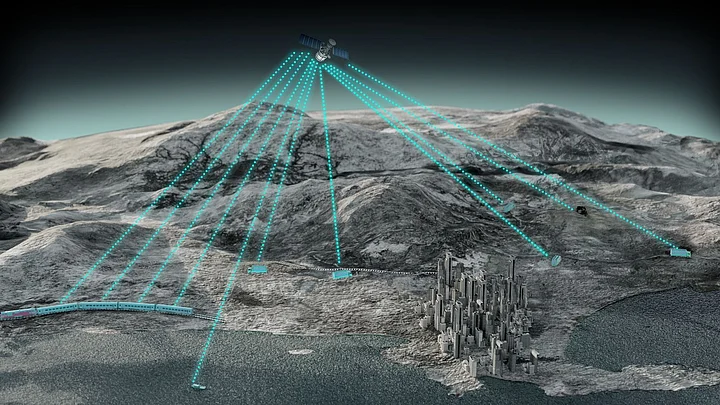In 2017, an MIT Aerospace and Astronautical engineering graduate, a Stanford professor and a Ph.D. scholar in Aeronautics also from Stanford – Parthsarathi Trivedi, Andrew Kalman and Andrew Nuttall respectively – got together to solve a pressing global connectivity issue. The three founded Skylo, a company that can beam satellite internet connectivity to remote areas with hardware that costs less than $100 (Rs 7,400) apiece.
In January 2020, the company raised $116 million (Rs 886.5 crore) in funding from a group of investors including SoftBank. It earlier had about $13 million in Series A (initial) venture funding. It's going to use that money to expand its Skylo Hub hardware globally.
While satellite internet connectivity is not new, what makes Skylo Hub different is that the hardware itself is compact and portable, costs less than $100 apiece and comes with data connectivity plans that start at about $1, which for satellite connectivity is over 90 percent cheaper than other plans.
How Does Skylo's System Work?

Skylo makes a satellite transmitter-receiver box, called the Skylo Hub, with its self-developed set of antennas and transmitters. This box measures about 8 inches square in size. It connects to a network via geostationary satellites.
The Skylo Hub can be powered by batteries or plugged into a wall socket. It then acts as a Wi-Fi hotspot for all nearby Internet of Things (IoT) devices. It is primarily going to be used to transmit sensor data for IoT devices.

This will help private companies and government bodies connect to and monitor equipment in remote areas of the world. It can be deployed in the maritime industry to track fishing boats, track trucking fleets, monitor remote equipment or even agricultural sensors on farmland.
It works over existing cellular-based IoT protocol, using a two-way network that is already in place on existing satellites. This means it is a plug-and-play solution for customers looking for remote connectivity.
The Palo-Alto, California-based company has offices globally including in Israel, Singapore and in Bengaluru, India.
Meet Skylo's Founders

CEO and co-founder of Skylo, Parthsarathi “Parth” Trivedi was recently featured in Forbes' global 30-under-30 list. He is an aerospace engineer from MIT and a management graduate from Standford. Parth has led missions and aerospace projects when at MIT, sponsored by NASA, FAA and the US Dept of Defense.
He was nominated to the US delegation task force to the UN technical body on global aviation (ICAO). He studied aeronautical & astronautical engineering from Purdue University. Before co-founding Skylo he spent a few months as a resident entrepreneur at Innovation Endeavors, an early-stage venture capital firm that partners with startups.

Skylo's co-founder and CTO, Dr. Andrew Nuttall has a Ph.D. in Aeronautics & Astronautics from Stanford University, and a degree in Mechanical Engineering from Michigan State University. Andrew previously worked on multiple NASA and private-sector satellite missions.

Skylo's third co-founder and Chief Hub Architect, Dr. Andrew E. Kalman was an Associate Professor in Stanford University's Aerospace and Astronautics (AA) Department, where he led the department's Space & Systems Design Laboratory (SSDL). Kalman is a serial entrepreneur. He has founded companies such as Pumpkin Inc. and Euphonix. He has a Ph.D. in electrical engineering from the University of Florida and an undergraduate electrical engineering degree from Stanford.
(At The Quint, we question everything. Play an active role in shaping our journalism by becoming a member today.)


